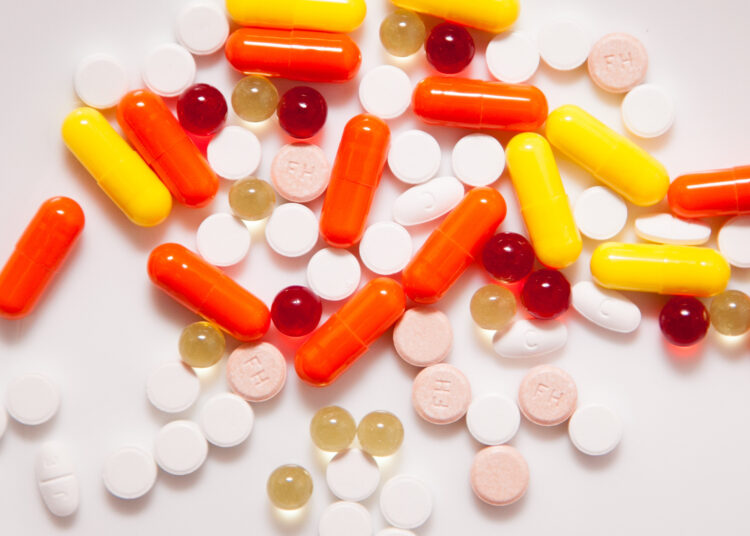Medical personnel in both public and private hospitals in Nigeria are fighting the worst battle caused by the prevalence of fake drugs and substandard healthcare consumables.
They said the development had become an alarming public health issue in the country.
In separate interactions with LEADERSHIP Weekend, the healthcare experts raised serious concerns over the impact of fake drugs, describing it as a major threat to patient safety, healthcare efficiency and the economy.
They warned that these counterfeit products were not only endangering patients’ lives but also crippling the already overwhelmed healthcare system.
Some senior hospital personnel and pharmacists confirmed to our correspondents that their organisations were facing serious medication and treatment problems arising from the prevalence of fake drugs.
The health workers, who sought anonymity to avoid causing panic among their patients and public trust in the healthcare system, charged the governments at all levels and other stakeholders to join forces against the menace.
Their claims were corroborated by the president of the Medical and Dental Consultants Association of Nigeria (MDCAN), Prof Mohammed Mohammed, who told LEADERSHIP Weekend that fake drugs, whether they contain incorrect dosages, toxic substances or no active ingredients at all, have led to countless treatment failures.
He said patients taking counterfeit antibiotics, for instance, may develop complications such as sepsis, which could prolong an illness or even lead to death.
Beyond drugs, substandard healthcare consumables such as non-sterile syringes and fragile gloves also pose a significant danger. “These poor-quality consumables not only increase infection risks for both patients and healthcare workers but also delay medical procedures, increasing morbidity and mortality,” he said.
LEADERSHIP Weekend checks revealed that counterfeit drugs are not just a danger to patients, they also worsen the workload of the country’s already overstretched healthcare workers.
Mohammed said patients who would have recovered with a single treatment often return multiple times because they received ineffective medication.
“This leads to unnecessary hospital visits, increased strain on doctors and nurses, and longer waiting times for other patients. In some cases, healthcare workers must treat complications from counterfeit products such as infections from contaminated supplies or drug-resistant pathogens due to substandard antibiotics,” he said.
The impact extends beyond patient care. “Healthcare workers experience burnout and frustration when they know they are prescribing drugs that may not work. This ethical dilemma can push many to leave the country in search of better working conditions,” Prof Mohammed lamented.
The persistence of fake drugs has also led to declining public confidence in the healthcare system. “When patients don’t get better despite taking prescribed medication, they start to distrust hospitals and healthcare workers,” he added.
According to him, this mistrust has far-reaching implications, including an increase in self-medication and reliance on alternative treatments, which may worsen health outcomes. In some cases, hospitals face lawsuits from patients who feel they have been given ineffective treatments.
Fake drugs also come at a steep financial cost. “Instead of making one hospital visit and getting well, patients must keep returning, spending money on transportation, additional drugs and more consultations,” Prof Mohammed explained.
For the economy, the consequences are severe. Prolonged illnesses mean lost work hours, decreased productivity and additional strain on the healthcare system. “If someone should recover in two days but instead takes two weeks because of fake drugs, the economic impact is enormous,” he added.
He identified one of the biggest challenges in tackling fake drugs in the country as weak regulatory framework, lamenting that the country has become a dumping ground for counterfeit medicines, with poor border controls and an ineffective tracking system.
Despite the efforts of the National Agency for Food and Drug Administration and Control (NAFDAC) and the Pharmacists Council of Nigeria (PCN), the crisis has persisted.
“If they were doing enough, the percentage of fake drugs in the market would be below 10 per cent. But right now, studies show that 40-70 percent of drugs and consumables in the country are substandard,” Mohammed stated.
As counterfeit drugs continue to flood the Nigerian market, the stakes have become higher. “This is not just a healthcare problem; it’s an economic and national security issue. Without urgent intervention, the cycle of fake drugs will continue to claim lives, weaken our health system, and push more healthcare workers to leave the country,” Mohammed warned.
In the same vein, a nephrologist, Dr Ajibike Shanu Omolola, highlighted the deadly consequences of counterfeit medicines on one of the body’s most vital organs – the kidneys.
Omolola, a former national president of the Nigerian Association of Nephrology Nurses, said, “The kidneys are crucial for filtering waste and toxins from the blood, maintaining electrolyte balance, and regulating blood pressure. When exposed to fake drugs, these vital organs can suffer irreparable damage.”
The kidneys play a crucial role in detoxifying the body, but when exposed to harmful substances in fake drugs, they can quickly deteriorate, Omolola asserted, even as she outlined acute kidney injury, chronic kidney disease and kidney failure as three major kidney-related consequences of counterfeit medications.
She said, “Some fake drugs contain toxic substances that can cause sudden and severe kidney damage, leading to acute kidney injury (AKI). This condition results in the rapid build-up of toxins in the blood, which can be life-threatening if left untreated.
“The prolonged use of counterfeit medications can lead to chronic kidney disease (CKD), where kidney function gradually declines over time. CKD not only affects kidney health but also increases the risk of cardiovascular diseases, anemia and bone disorders.
In severe cases, continuous exposure to fake drugs can lead to complete kidney failure, leaving patients dependent on dialysis or requiring a kidney transplant to survive.”
Omolola identified several types of counterfeit medications that pose significant risks to kidney health, adding that fake versions of common painkillers, such as acetaminophen or those containing the banned substance phenacetin, can severely damage the kidneys over time.
Also, counterfeit antibiotics with harmful additives, such as certain sulfonamides or tetracyclines, can impair kidney function and some fake herbal products contain toxic compounds like aristolochic acid, which has been linked to severe kidney damage and even cancer, she added.
On how one can protect oneself from fake drugs, Omolola emphasised the importance of vigilance in purchasing and consuming medicines.
She provided key recommendations to safeguard against fake drugs, urging Nigerians to buy drugs from authorised dealers. “Always purchase medications from licensed pharmacies or verified online retailers. Check packaging, labelling, expiration dates, and security features such as QR codes or holograms.
“If a drug is significantly cheaper than its market price, it may be fake and if in doubt, seek advice from a doctor or pharmacist before taking any medication,” she advised.
The menace of fake drugs is not just a regulatory issue, it is a direct threat to public health, even as Omolola urged governments, healthcare providers and consumers to work together to combat this crisis through stricter enforcement, public awareness and better reporting systems.
“Fake drugs are a silent killer. By staying informed and cautious, we can protect our kidneys and overall health from irreversible damage. As counterfeit drugs continue to flood markets, consumers must remain vigilant. Kidney health depends on genuine, safe medications, making awareness and proactive prevention more critical than ever,” she warned.
Also, the deputy director, Medical Laboratory Services, National Hospital, Abuja, Anthony Ilegogie, said the problem is deeply rooted in corruption. “Fake drug importers are driven by greed. They deliberately ask manufacturers to reduce the efficacy of drugs so they can sell them cheaply and make more profit,” he said.
The experts stated that addressing this crisis requires a multi-faceted approach, including stronger regulatory enforcement, better supply chain oversight, consumer awareness and stronger border control.





